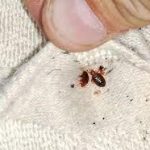It is always enjoyable to have a good meal – whether we enjoy cooking a family meal from scratch or go out to eat a romantic meal in a favourite restaurant – the choice of foods that we have nowadays is fantastic. However, something which it is always wise to be aware of, when cooking from scratch or eating out is food hygiene.
Although there are many ways to keep an eye on food hygiene – for example, there are requirements for restaurants to be inspected as well as companies like this https://hygienecheck.net who will provide a food hygiene check, there are many people who suffer from food poisoning each year, and in some cases this can be very severe.

As well as the fact that it is a thoroughly unpleasant experience, it can also mean missing a lot of time from work or school, or spoiling a holiday, so it is always good to be informed about good food hygiene practices.
Good personal hygiene is important when it comes to preparing food. If you have dirty hands and then go to prepare foods, you can then spread those germs to the people that you are cooking for. This is why you should always wash your hands thoroughly before making any food. This also applies to the kitchen and food preparation area- make sure that you have used an anti-bacterial spray suitable for kitchen surfaces to clean the area for food preparation before you begin.

The way that you store food is also important when it comes to food hygiene. Certain foods need to be kept in certain conditions to prevent them from going off and therefore passing on food poisoning to the person eating it. Mould in foods varies – some is more dangerous than others and although it is highly unlikely to be deadly, it can trigger a severe allergic reaction, and some moulds contain something called mycotoxins, which can make a person sick. Moulds and funguses thrive in warm and wet conditions – this is why lots of foods have the notice on them to store in a cool dry place.
Another common source of food poisoning is when foods that have already been cooked are reheated. This is usually when the food has not been reheated enough so any bacteria on it has not been killed. There are also some foods that you should never reheat – potatoes for example are somewhere that the botulism bacteria can thrive if they have been left to cool, as well as eggs as they can contain salmonella, and if they have been left at room temperature the bacteria can then thrive. This also applies to things like flans and quiches too which contain a lot of eggs. Rice also is another one that until recently many people thought was ok to re heat – however it is sometimes contaminated by a bacteria known as bacillus cereus which is actually resistant to high temperatures.








